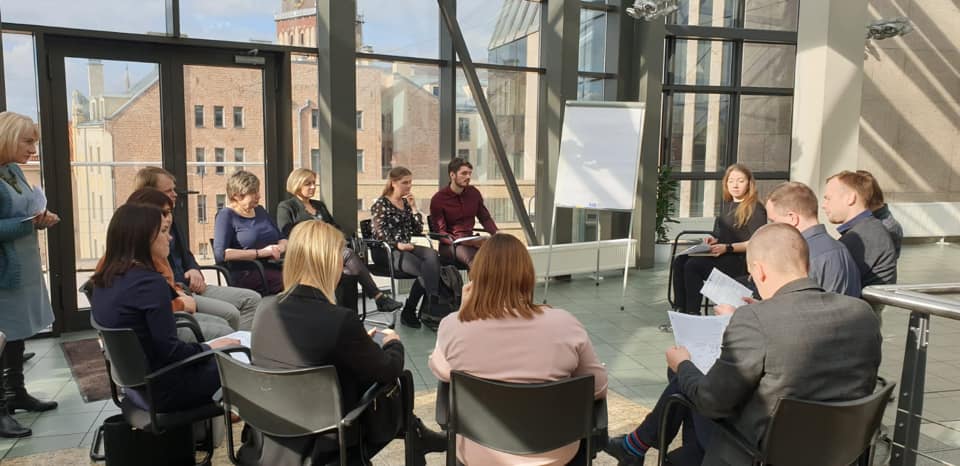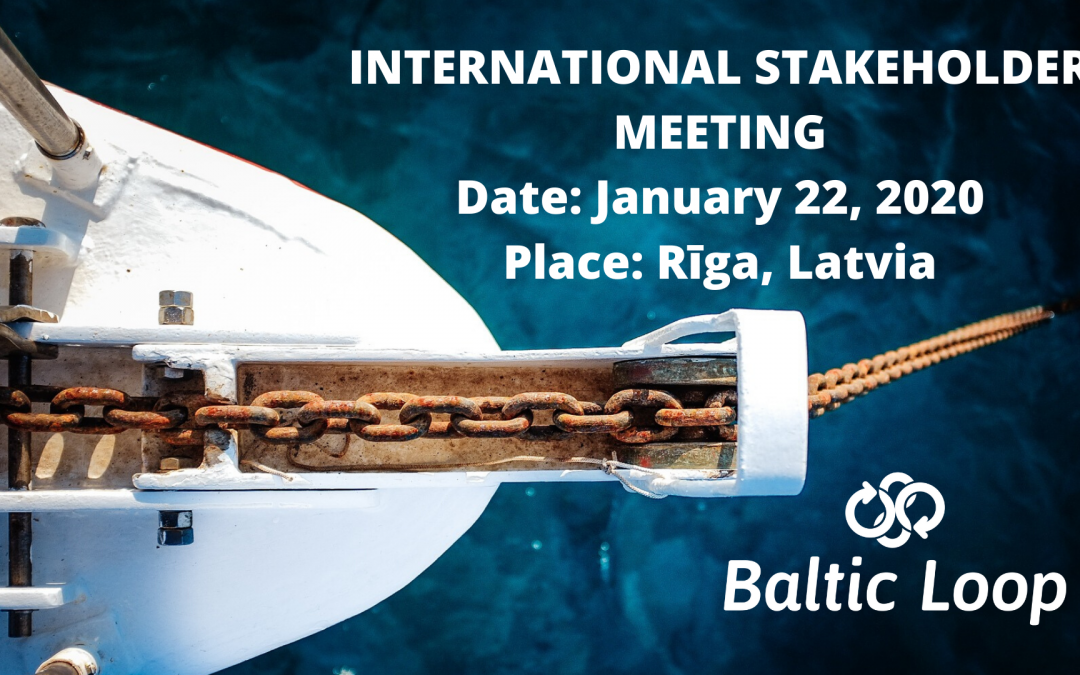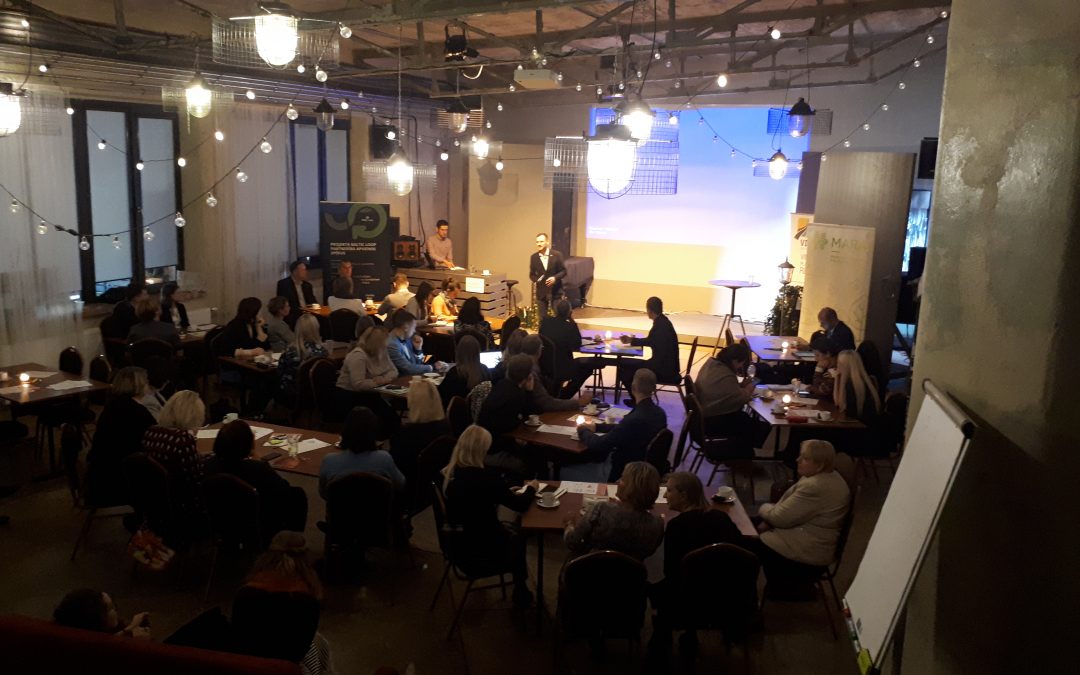
by Anita Āboliņa | Mar 31, 2020 | News
With the increase in cargo volume nowadays, the demand for physical infrastructure might increase. However, the overall efficiency could also be improved by employing digital infrastructure and communication methods during cargo transportation. The main idea is to achieve the maximum utilization rate of the available infrastructure, technology, and other kinds of resources. Together with a collaborative environment, it will be possible to reduce transport emissions in our corridors and result in efficient transportation.
Welcome to Baltic Loop Newsletter #3!
TO READ OUR NEWS, PLEASE CLICK >> HERE <<
This time it is a must-read because the results of the questionnaire for stakeholders related to freight and passenger transport are summarized and you are welcome to introduce yourself with the main findings. These are very important conclusions that will help to achieve the goals of the project more efficiently, as the situation has been evaluated by the industry.
The thematic questionnaire was conducted to meet the following objectives:
- evaluating transportation services and operations on selected corridors;
- identifying main hindrances and drivers for smooth transport flows;
- highlighting areas where improvements for more efficient traffic are needed.
If you would like to see the full version of the survey report, don`t hesitate to contact us!
Despite the challenging time, the work continues!

by Anita Āboliņa | Mar 7, 2020 | News
On March 5 2020, the Riga Planning Region brought together stakeholders from the transport industry to find solutions for sustainable urban mobility and better quality of life in and around cities. It is acknowledged that the players in the industry are the same, so resources must be pooled and used wisely. The forces were combined with the Interreg Baltic Sea region project SUMBA to present news in the sector and invite them to participate in working groups to discuss the development of various issues.
Thematic directions of the working groups were:
- SUMP understanding and governance model,
- Infrastructure development and technical solutions,
- Change of commuting habits.
The audience included experts and professionals of the industry and municipalities, as well as representatives of the ministries and coordinating bodies.
It is important to bring together people at all levels – local, regional and national and to integrate it all into an internationally coordinated set of new solutions.

by Anita Āboliņa | Jan 22, 2020 | News
On January 22, an international stakeholder meeting was
organized in Riga, during which interested persons could get acquainted with
Latvia’s national strategy on transport development, as well as see the close
connection between national and international goals and initiatives that could
help to achieve them. Presenters included both domestic and foreign experts.
Presenting the Latvian Transport Development Guidelines 2027, Inta Rozenšteine of the Ministry of Transport of the Republic of Latvia acknowledged that
“projects such as the Baltic Loop are very important for the policy implementation on national level.”
She also looks forward to contributing to the Baltic Loop.
RB Rail Latvia spokesman Ģirts Braman introduced the objectives of the major cross-border project and how far it has gone.
He encouraged projects to use the opportunity and share relevant information and data.
“No project, even on a scale like Rail Baltica, will be effective unless synergies are sought.” Mr Braman said he was very interested in what the results of the Baltic Loop project would be and saw that they could be important for the transport industry as a whole.
Representatives from Finland also shared their solutions for
traffic facilitation, presenting the concept of Mobility as service and virtual
queuing GoSwift.
An interesting panel discussion highlighted a number of key issues, such as the role of the public sector in promoting innovation; the extent to which we are prepared to work on common standards that allow solutions to cross borders rather than stop at them. The audience also remarked that the development of multi-modal points removes their accessibility in sparsely populated areas, in fact having the opposite effect.
A strong but true statement came from the hall: “The
world is full of strategies, but what about the practical implementation of
theory?”
After a fruitful discussion, the participants went on an
exchange of experience to the Adazi municipality and Skulte port.

by Anita Āboliņa | Jan 2, 2020 | News
International stakeholder meetings organized by the project
BALTIC LOOP is an important platform to exchange information, challenges,
contacts. It is also the best place to collaborate to come up with new
solutions that will benefit the industry of efficient transport of freight and
passengers along the Baltic Sea corridors with yet undiscovered potential.
The event AGENDA for 22nd January 2020 includes the following topics:
- Rail Baltica – project development and future perspectives / presented by Ģirts Bramans, RB Rail, Latvia
- Latvia transport development guidelines 2027 / presented by Inta Rozenšteine, Ministry of Transport, Latvia
- Mobility as a Service (MaaS) concept / presented by Filip Djupsjöbacka, Kyyti, Finland
- Virtual Queuing for cargo transport / TBA, Go Swift, Finland
At the end of the meeting, participants are offered the
opportunity to take a small site visit tour to the nearby municipality and
port.

by Anita Āboliņa | Oct 24, 2019 | News
In mid-October, transport experts, specialists, and innovators gathered in Līgatne (Latvia). The high number of attendees confirmed that the transport sector also needs to work on new ideas and new solutions.
The workshop brought together a wide range of stakeholders, including representatives from ministries, associations, executive bodies and municipalities.
There were also representatives of several societies that bring various innovations to meet the challenges of mobility on a daily basis, as well as representatives of several companies engaged daily in research, development projects, strategies, and evaluations. The seminar program was deliberately designed to give the widest possible vision of the opportunities and solutions already available for the development of the sector.
It was emphasized that the real needs of the identified audience are the basis for effective and good solutions to improve traffic. Another important aspect to take into account, when planning mobility, is the interaction between the different scales: not only at the local or municipal level but also at the regional, national and international levels.
A spokeswoman for the Ministry of Environmental Protection and Regional Development, informing those present about the development of sustainable and environmentally friendly transport outside the big cities, stated that municipalities can be considered as a significant influence on the development processes in the regions.






